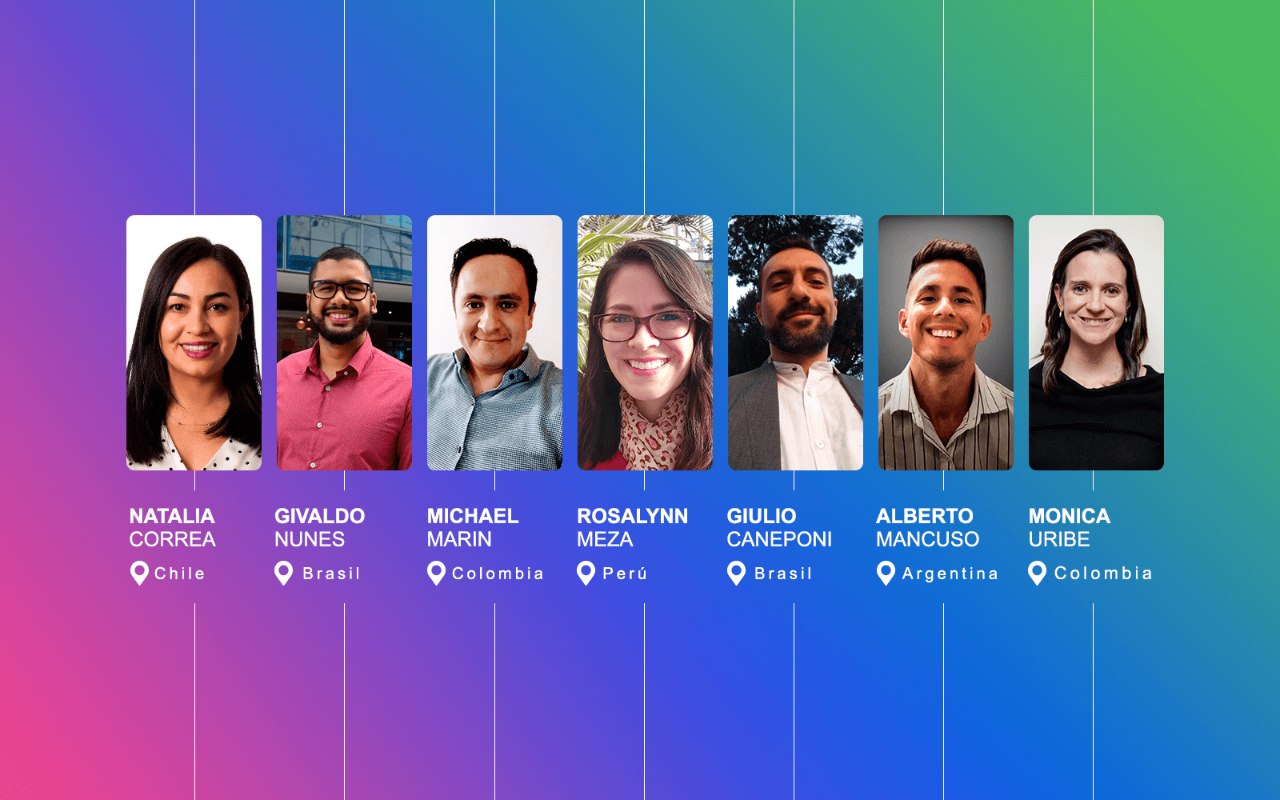Eight weeks of learning, in a program designed especially for Enel Group collaborators in Latin America. More than 90 participants, from 5 business lines, hailing from 5 countries, are to work in 10 teams and will face the challenge of the circular economy.
Representatives from Chile, Argentina, Brazil, Colombia, and Peru are to learn strategies and new business models to promote circularity through to December 16, the course’s graduation date. They are learning experiences, real case studies of international companies and startups that have incorporated circular business models. They will design and apply circular innovations in practical workshop sessions.
TRANSFORMATION TO A MORE SUSTAINABLE MODEL
The program is designed to allow participants to learn the new economic model set out in the Circular Economy. The Group has been promoting a shift to the Circular Economy since 2019. This year expert teams have been formed in a number of Latin American countries, and one of their principal focuses has been established as reducing gaps in knowledge about this model and promoting the company’s vision and strategy amongst its collaborators. This program not only provides theoretical knowledge about business models and strategies, but also shows how this model reduces exposure to environmental risks and proposes new ways of creating value for clients in a sustainable manner.
Natalia Correa, Head of Circular Economy at Enel Chile, explains that this program comes as the result of com between the Circular Economy divisions in Argentina, Brazil, Chile, Colombia, and Peru. “It is designed for Enel Group collaborators in Latin America, allowing participants to expand their professional networks by designing their own multidisciplinary projects. Over the duration of the course, there are talks by international experts, practical case studies from major companies and startups, and a chance for participants to engage in collaborative projects.”
On completing the program, participants will be eligible to become Circular Economy Leaders and join the Enel LATAM Circular Economy Community.
Natalia Correa notes that “The LATAM Circular Economy School is a great opportunity to enrich the conversation and engage in shared reflection on the transformation that we are making towards a more sustainable model, ask ourselves about our role and how we can contribute as professionals and also as people in the fight against the climate crisis. It has also shown us the many opportunities for innovation and collaboration that exist for Enel in Latin America.”
LATAM EXPERIENCES
In Argentina, Circular Economy Manager Cristian Mancuso states that for him, this is an experience for acquiring knowledge. “This knowledge will allow us to identify opportunities in our work areas and handle our tasks and projects with a broader outlook.”
It is a strong signal of the group’s decision to invest in the formation of this model throughout all levels of the organization, empowering all participants to be part of the change towards a circular model. All business lines are represented at the work groups in each country, so the transition to the model will be more dynamic, solid, and effective after the LATAM Circular Economy School,” he noted.
Participants report that the Circular Economy School opened up their chance to identify circularity as a fundamental part of processes. “We have to think about new life cycles for our assets and materials, like designing them in a more circular manner and thinking about what happens once their working life has ended. Improving our clients’ circularity with new business models, metrics, and products. And finally, applying the key concept of open power, we are providing the world with a chance to find solutions as the Circular Economy garners greater strength when working in partnerships,” stresses Cristian Mancuso in Argentina.
In Brazil, Giulio Caneponi explains his motivations for taking part: I am taking part in order to acquire a full understanding of the circular economy, to develop new material logistics processes taking into account these reforms, revitalizations, reuse, and recycling of materials that are obsolete, fail to meet current standards, or have been withdrawn from the network for disposal.”
Giulio Caneponi is sure that applying the circular economy can be achieved by changing our day-to-day habits. “I believe that the first step would be about making everyone more aware of the issues of recycling, reuse, and repair, and that this could easily be replicated in other activities that an individual might find themselves performing, like workplace activities.”
In Colombia, Michael Marín believes that the best way of applying the Circular Economy in everyday living is “extending the time and frequency of all products that I use in my daily life, thus minimizing consumption of new products and thus the raw materials that are used to make them. I can also apply it by using shared services, like using ride sharing platforms for transport and other similar systems.”
The course will be attended by collaborators from 5 countries and deliver a total of 8 sessions covering topics that range from “What is the Circular Economy and Strategies to promote it”, to modules on subject matter areas like business models, design, metrics, value propositions for our clients, governance, and circular cities.
In Peru, Rosalynn Meza is the Country Lead for the Circular Economy. She is involved in organizing the Circular Economy School, and is also attending as a trainee for this course.
“It’s a very good experience. So far I have been alongside the trainer as my country’s CE lead, and this time I am not just an organizer, I’m a participant and I’m learning a lot from the outside experiences and case studies that are presented - it helps give us a broader vision of how to apply CE in different settings.”
The everyday is the biggest test for our understanding of the Circular Economy. Initiatives like this allow Rosalynn Meza to reaffirm her personal commitment to the circularity of things. “Learning more about the Circular Economy has now made me think better when I want to get something: now I don’t buy anything unless I really need it, and that’s helping me save more, and my environmental awareness is much greater than before.”
Other key aspects include the chance the course gave her to learn about experiences and situations in each of the participating countries. In this way, she notes, participants could enrich their own experiences, building links that will let them undertake collaborative tasks, going beyond their own borders.
The existence of companies is ever more closely linked to sustainable models like the circular economy.
The Circular Economy is one of the most innovative economic concepts, challenging us to rethink core elements of the whole economic model, from a holistic perspective, in which the objectives are economic competitiveness, environmental sustainability, and social inclusivity.
The Circular Economy School represents an important step for Enel Latam and Enel Chile towards the development of knowledge and dissemination of solutions to all business lines, to enhance the circularity of all aspects of their activities, while also helping to build a changed mindset amongst professionals, and particularly amongst people who are aware and active in the struggle against the climate crisis.
If you want to read the interview with Natalia Correa about Circular Economy read here


